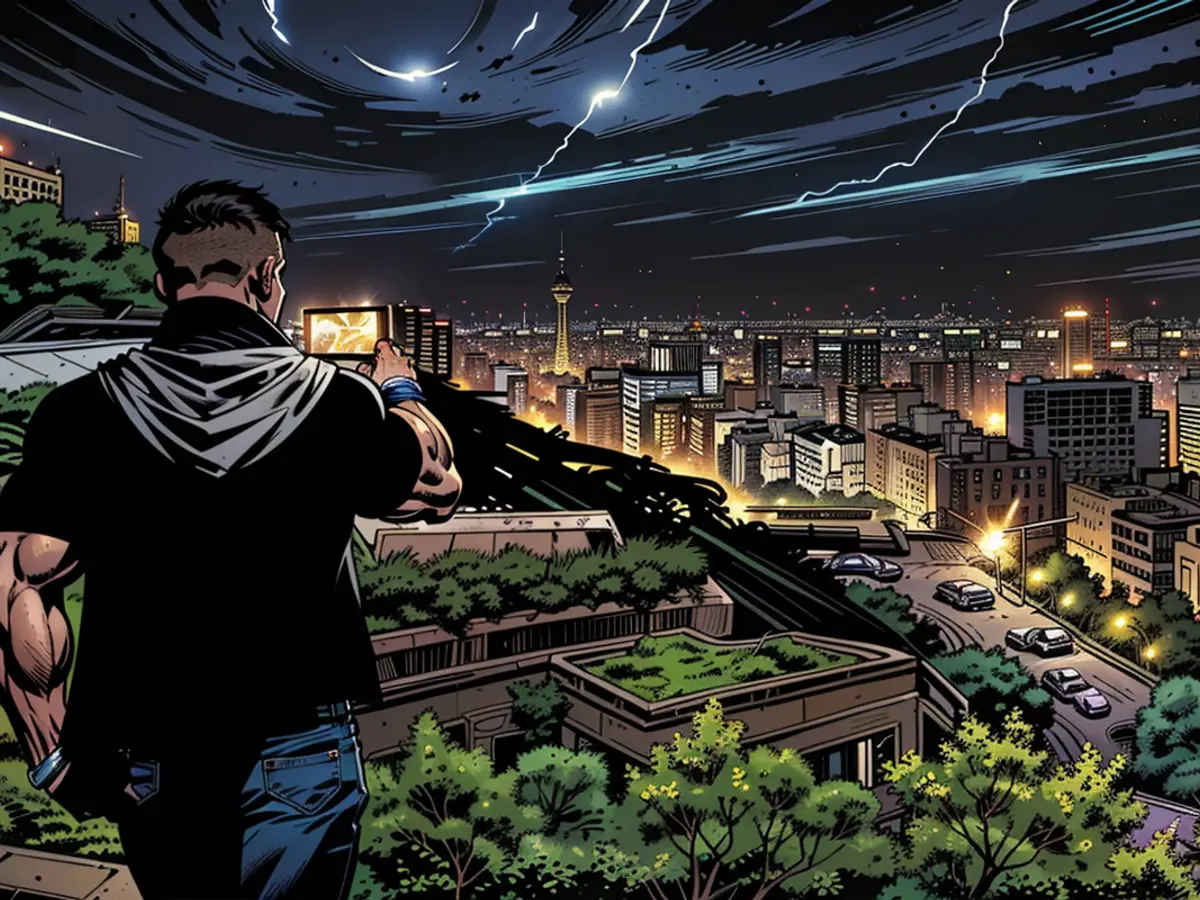Iran announces two fatalities and moderate harm to military installations.
After the Iranian retaliation against Israel, a response was imminent for weeks. The Israeli Air Force seemed to be focusing on damaging missile manufacturing sites. The Iranian government merely mentioned "moderate damage" following the assaults.
Following the Israeli operations, Iranian state television reported damage to multiple military bases. These areas included Ilam, Khuzestan, and Tehran provinces, as per their statement. No visual evidence was provided. Moreover, two Iranian military personnel lost their lives due to "projectiles from the criminal Zionist regime," as stated by the Iranian armed forces.
The military claimed to have constrained the Israeli attacks' impact through their air defense efforts. The army, however, did not supply any evidence to support this. Israel admitted to striking missile manufacturing facilities and other sites within the nation. "Countless fighter jets and drones" were employed, as reported by the Israeli news site Ynet.
These facilities played a key role in producing rockets targeted at Israel during the previous year, which posed a "direct and imminent threat" to Israeli citizens, stated the military spokesperson Daniel Hagari. In addition, ground-to-air missile systems and air defense systems were targeted. These were intended to curtail Israel's operational capabilities within Iran's territory. "Now, Israel has more freedom for aerial operations, even within Iran," said Hagari, seemingly hinting at future attacks. "The Israeli Defense Forces possess an array of offensive capacities, some of which were utilized during today's strike on strategic facilities deep within Iranian territory," said Hagari regarding the nighttime attack, completed the following day.
The designated targets were selected from an Iranian list. If necessary, additional targets from this list could be attacked, stated Hagari. "This is a clear warning: Those who threaten the State of Israel will face severe repercussions."
An Israeli action had been predicted for several days. On October 1, the Iranian Revolutionary Guards' air force launched around 200 ballistic missiles at Israel. Israel promised retaliation. Whether Iran would counter-strike following Israel's counter-offensive is uncertain. The authorities had hinted at such a probability.
Israel warns Iran against counter-offensive
This was the first significant attack by a foreign power on Iran since the first Gulf War between the Islamic Republic and Iraq in the 1980s. Iran's Revolutionary Guards had threatened a forceful response to any attack in recent days. Following the conclusion of the assault, Israel's army spokesperson cautioned Iran against further escalation. "Should the Iranian regime mistakenly initiate another escalation phase, we are obligated to respond," said Hagari.
As per media reports, Iran's military prepared for multiple potential scenarios before the attack. If Israel were to launch a massive assault and, for instance, target the country's oil and nuclear facilities, the response would be severe, reported "The New York Times," citing four Iranian officials, including two members of the Revolutionary Guards.
Iran could potentially launch up to 1,000 ballistic missiles at its main adversary, intensify attacks by affiliated militias in the region, and disrupt maritime traffic in the Persian Gulf and the Strait of Hormuz. As a result, the U.S. deployed a THAAD missile defense battery in Israel. Last year, the U.S. had already stationed a THAAD system battery in the region.
After the Israeli warning, the following statement was issued by Israel's army spokesperson, Daniel Hagari: "Should the Iranian regime mistakenly initiate another escalation phase, we are obligated to respond."
Furthermore, during the preparations for the potential Israeli attack, as reported by "The New York Times," the Iranian military had identified the following as possible scenarios: "If Israel were to launch a massive assault and, for instance, target the country's oil and nuclear facilities, the response would be severe."








